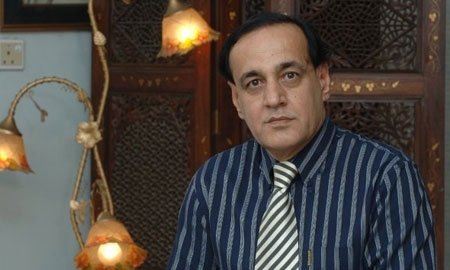Economic growth and political stability are deeply interconnected. The uncertainty associated with an unstable political environment may reduce investment and the pace of economic development. Poor economic performance may lead to unrest. Our economy holds immense potential. Pakistan has a steadily growing economy. Many companies starting from scratch have become one of the leading business entities. Their market is expanding, exporting to several countries. This shows that we are not lagging behind. I would say that business is still doing well in the country, and we can expect even better growth in the future. The power shift temporarily affects the economy, which is normal. However, the current government is working to improve the situation. We now have some competent individuals in the financial sector, a capable leader, and experienced advisers. Several effective measures introduced are crucial for the economy. At this moment, improving law and order is of utmost importance. Although business owners initially faced challenges due to labor issues, the situation has now become much more positive. High interest rates on loans have created additional pressure on new investments. Recently, the policy interest rate was increased further to control inflation. However, this hike in policy rates is causing a continuous rise in loan interest rates. High interest rates are an obstacle to boosting investment and employment. We hope that this does not become a long-term issue. We believe in adopting a zero-tolerance policy toward law and order issues will give businesses the confidence to invest. Moreover, a poor law-and-order situation could send a negative message to foreign investors and well-wishers, which is not happening at the moment. Therefore, it is essential to sustain a conducive environment permanently. We believe there is significant potential for foreign investments to come to our country in the future, so establishing stability is crucial. In this regard, a stable, elected government can play a vital role in ensuring national stability. The more we move in this direction, the more beneficial it will be for the country. Our dear homeland Pakistan, must ensure a stable political climate to remain an attractive prospect for foreign direct investment. Political stability is one of the most important elements in attracting investments, as it gives clarity about the political economy direction and is a sign of clear commitment. Obviously, investors will not come, in case they perceive that direction as wrong for the economy. Investors need signals of stability, and commitment to a reformist agenda aimed at creating the right system for them in terms of regulation, access to the financial system, and the labor market. We should have a clear economic agenda. It is also important for investors to have a perception of political stability before they decide to invest in any country. Pakistan is no exception. If we face political instability, there is no hope for businesses to survive. This will indefinitely scare the investors away. If this happens, investors are in a fix, unable to put forward future business plans, and afraid of rising costs in the future affecting their production, sales, and marketing. In terms of attracting more FDI, Pakistan must instill confidence among investors that there is scope for sustainable economic growth in the country. To do so, it must aggressively encourage the environmental, social, and governance principles in the business environment, monitor domestic inflation, and place greater importance on structural reform. The government must intensify efforts to improve foreign investor sentiment towards Pakistan by implementing policies that can spur its attraction as an exciting investment destination. As we forge ahead on the path of economic revitalization supported by ongoing policy reforms and accelerated digitalization, the government can remain committed to prioritizing the needs of people and businesses.
Khan’s Call to protest
One can question whether the Islamabad Police are getting ready for war based on the extent of the preparations. In...
Read more







